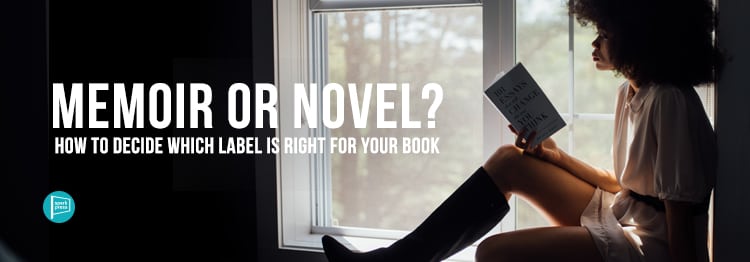
It’s surprisingly common for authors to be unsure whether to categorize their book as a memoir or a novel. What should be a pretty clear divide has become blurry, and some are insisting on a “hybrid” label—a fictionalized memoir, a novoir, a memvel, or the like. While genre-crossing is often encouraged, the line between fiction and nonfiction remains one that should not be crossed. Thus, here is a handy-dandy guide on how to categorize your book.
Is it true?
If everything in your book really happened, it may be wise to categorize the book as a memoir. If the events in the book are notall 100% true (with a margin of error for perspective and condensation for story-telling purposes), then it is definitely a novel. If it’s close, make sure that the characters in your novel are distinct enough from the real people that inspired them. If you’re not sure it’s true, whether it’s because you don’t remember the events in the story all that clearly, or they happened to somebody else, then your book is absolutely a novel. (The Evan Marshall Agency)
Will it upset the people you love?
If you’re concerned that publishing a tell-all memoir will cause rifts, there are ways around it. You can change the names of people, and include a disclaimer on the copyright page that names and other identifying details have been changed for privacy reasons. However, this will not protect people like your immediate family—it’ll still be obvious that your dad is your dad, no matter what you change his name to. The way around this is by publishing under a pseudonym. However, if the issue is that what you’re saying about the people you love will cause interpersonal issues unrelated to outside perspective, the best way to free yourself to tell your truth is to publish it as fiction. Again, make sure the characters are distinct from the people who inspired them in this case—and it’s definitely wise to change the names. (Writer’s Digest)
What is the goal of your work?
If the story you’re telling is one that a large group will strongly identify with, or to show that something stranger-than-fiction actually happens in real life, or even to explore the unanswered questions surrounding the events described, memoir is the way to go. If you made it fiction, that would cheapen it; it wouldn’t have the same impact. However, if the goal is to share the story or to entertain, making it fiction will not have any negative effects—and in some cases will be a stronger choice. (Writer’s Digest)
What’s the perspective?
Memoirs are always in first person with only one perspective. The idea is to put the reader in your shoes, to relive this part of your life. If there are multiple perspectives, or you think a third-person limited point of view (or even third-person omniscient?) works better, than your book is a novel. (Jackson)

Leave A Comment